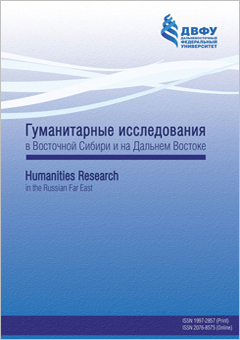The epistemological foundations of intersubjectivity in antiquity
DOI:
https://doi.org/10.24866/1997-2857/2025-1/76-83Keywords:
antiquity, intersubjectivity, dialogue, truth, friendshipAbstract
The article deals with the contribution to the foundations of intersubjectivity of such philosophical concepts as Socrates’ dialogism, Plato’s theory of ideas, and Aristotle’s ethics. Despite the fact that antiquity clearly states the ideas of the isolation of human experience and the impersonality of truth, we find that isolation only creates obstacles on the path to understanding the truth. True understanding is impossible without dialogue, the process of cognition is impossible without cooperation. The article reveals how through the interaction with truth and the Other intersubjective connections are formed in antiquity that determine social and cultural contexts.
Downloads
References
1. Античная литература: учебник / под ред. А.А. Тахо-Годи. М.: Просвещение, 1986.
2. Аристотель. Сочинения: в 4-х т. Т. 4. М.: Мысль, 1983.
3. Ахутин А.В. Философ В.В. Бибихин // Историко-философский ежегодник 2005. М.: Наука, 2005. С. 126–134.
4. Гагарин А.С. Одиночество и интерсубъективность в античной философии // Эпистемы-2: материалы межвузовского семинара. Екатеринбург: Банк культурной информации, 2001. C. 111–118.
5. Диллон Дж. Наследники Платона. Исследование истории Древней Академии (347–274 гг. до н.э.). СПб.: Изд-во С.-Петерб. ун-та, 2005.
6. Дорофеев Д.Ю. Образ учителя и образовательные коммуникации в античной культуре // Вестник Академии Русского балета им. А.Я. Вагановой. 2014. № 5. С. 71–80.
7. Интерсубъективность в науке и философии / Под ред. Н.М. Смирновой. М.: Канон+, 2014.
8. Ландгребе Л. Феноменология Эдмунда Гуссерля. СПб.: Русский мир, 2018.
9. Людвиг Витгенштейн: человек и мыслитель / Под ред. В.П. Руднева. М.: Прогресс, 1993.
10. Мамардашвили М. Лекции по античной философии. СПб.: Азбука, 2018.
11. Монтень М. Опыты. М.: АСТ, 2020.
12. Платон. Собрание сочинений: в 4-х т. Т. 1. М.: Мысль, 1990.
13. Платон. Диалоги. М.: Мысль, 1986.
14. Слинин Я.А. Феноменология интерсубъективности. М.: Наука, 2004.
15. Хайдеггер М. Время и бытие: статьи и выступления. М.: Республика, 1993.
16. Хайдеггер М. Феноменологические интерпретации Аристотеля (Экспозиция герменевтической ситуации). СПб.: Гуманитарная академия, 2012.
17. Черняков А.Г. Онтология времени. Бытие и время в философии Аристотеля, Гуссерля и Хайдеггера. СПб.: Высшая религиозно-философская школа, 2001.
18. Wiggins, E., 2019. Odysseys of recognition: Performing intersubjectivity in Homer, Aristotle, Shakespeare, Goethe, and Kleist. New Brunswick: Rutgers University Press.





